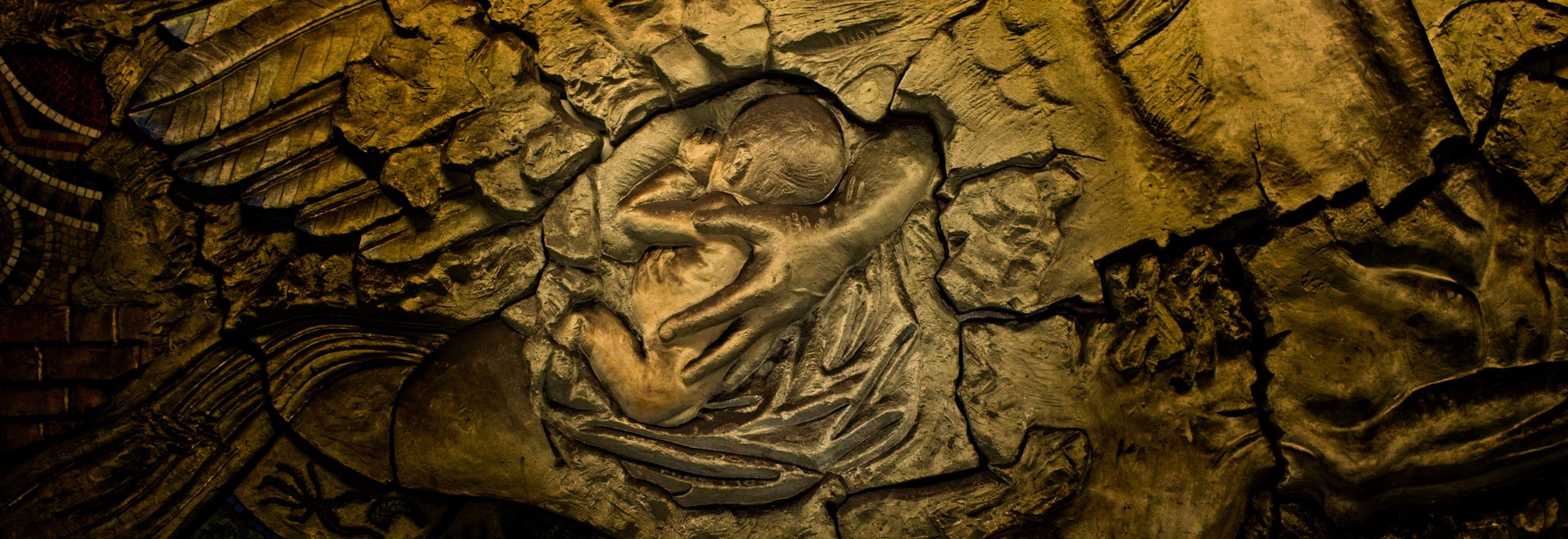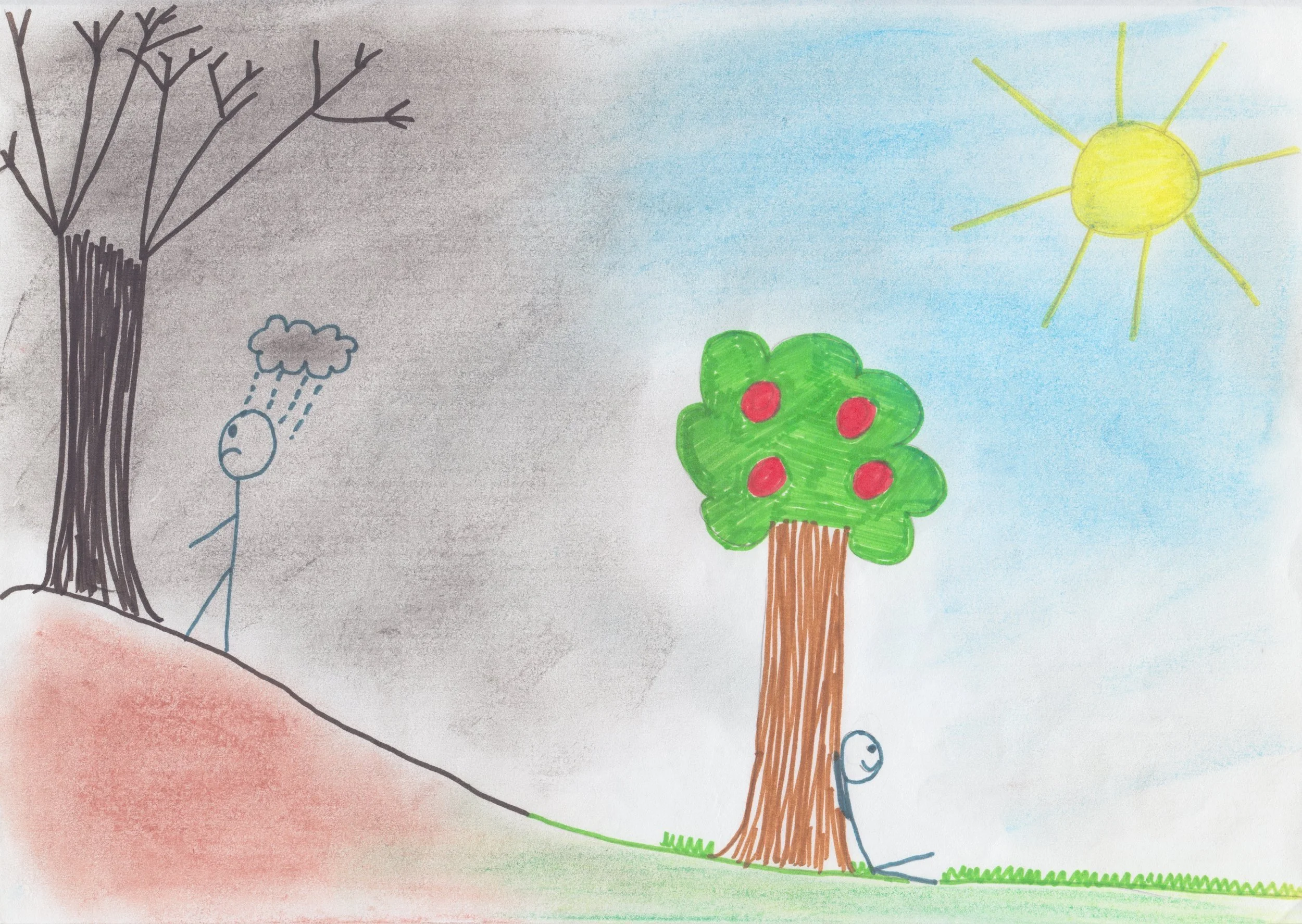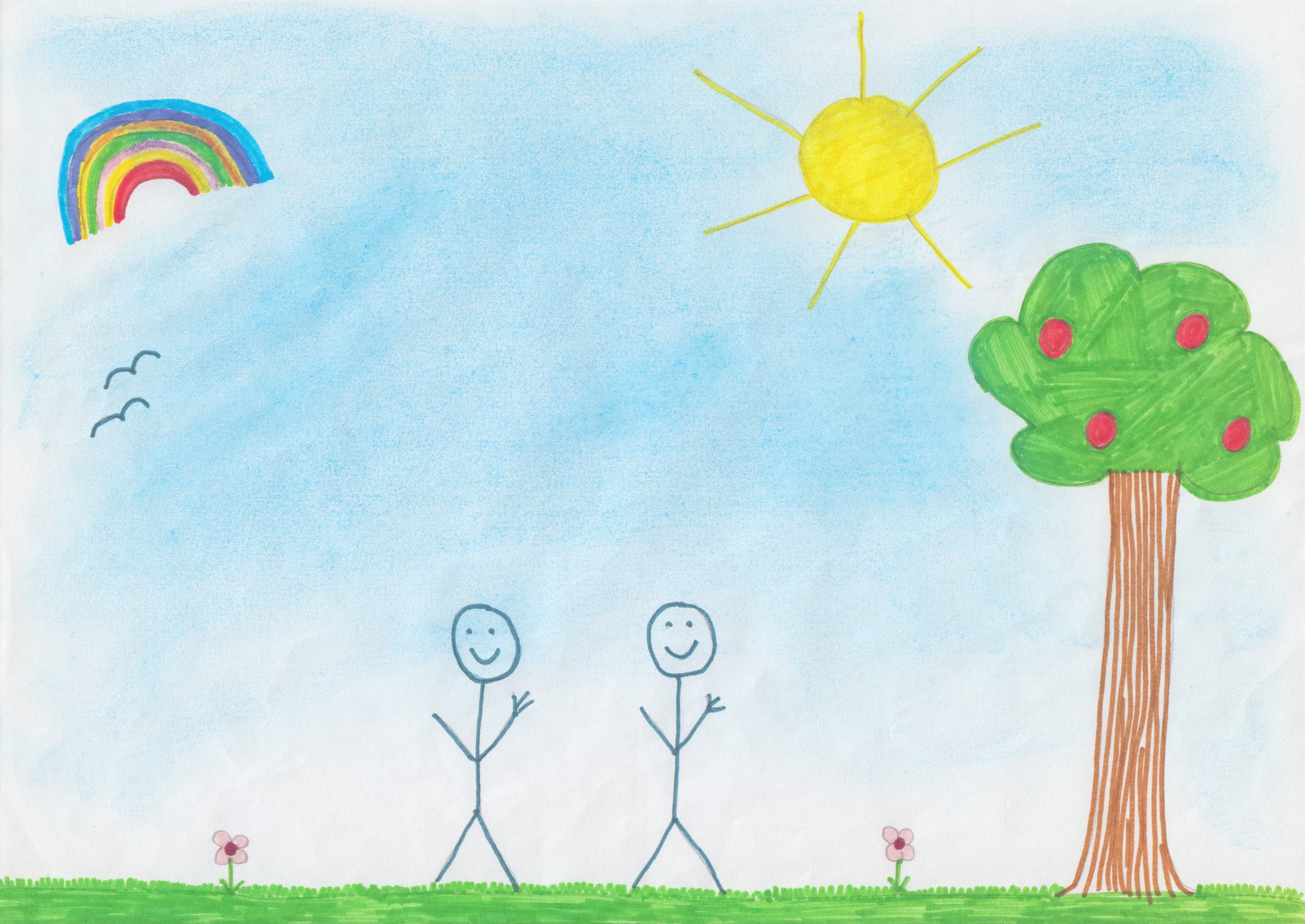
I’m OK, you’re OK
This is a representation of the world from an ‘I’m OK, you’re OK’ perspective
How we see ourselves and others
When we're looking at the world from an 'I'm OK, you're OK' perspective, we treat ourselves and others fairly, with kindness, tolerance and respect. We have a great capacity for compassion and empathy; we recognise the value of life - our own life, the lives of other people, other species of animals and plants, and the value of planet Earth itself. We recognise that these lives are all interconnected and dependent upon one another. We appreciate the transience and fragility of life. We might feel a deep sense of awe and wonder about life on the planet and humility at our place in the world. When we see the world from this position, life truly is an amazing gift to be embraced and enjoyed; we are glad to be alive.
When we see the world from an 'I'm OK, you're OK' perspective, we look around us and know that we belong. We recognise that whilst we are all the same physiologically, we all have different backgrounds and experiences, which means we live in the world differently, see things differently and find different solutions to the problems we encounter. We recognise that these inherent differences can cause difficulty between us. However, because we value ourselves and others for our basic humanity, we don't feel threatened by these differences, rather we feel curious about and can enjoy difference. We respect and embrace our differences, finding ways to work together in spite of them, learning new things along the way.
Because we recognise that we are all inter-connected, we understand that our behaviour has an impact on others. We're interested in what's happening with other people and the world at large. We recognise that we all struggle at times. We understand that people behave in ways to protect themselves, to keep themselves safe, to hide their vulnerability. We can be tolerant when people behave in ways that might not be ideal and we might understand why. We recognise that, at times, we all behave in ways which are unacceptable, but that even then, we still have value as human beings.
How we exist in the world
When we look around us from an 'I'm OK, you're OK' position, we have a sense of possibility, of our power to create and to shape the world around us. We're filled with love and compassion and everything we create in the world is shaped by these feelings. We notice the flowers growing and their scent drifting on the wind. Of course, there are weeds in the garden, but they're also part of the garden; we understand that there will be difficulties along the way, but when there are problems to be faced, we're able to remain grounded and deal with them. We are robust and resilient; we can weather any storm.
When we see the world from an 'I'm OK, you're OK' perspective, we feel safe. Knowing that we’re safe, we can trust people. We feel a sense of belonging and because of this, we feel welcomed, accepted by and equal to our fellow humans. We are warm and approachable, able to empathise with others, treating them with honesty and equity. We care for ourselves and others, seeking out similar people who reciprocate and value us in the same way. We're able to make and keep good relationships*, having good boundaries in place. If we need help with something, we're able to ask for it. We know that we are enough and we feel good about ourselves; we have good self esteem. Our thinking can be broad and encompassing, incorporating the needs and views of others; we can be open-minded. Like the flowers in the garden, we're able to move with the wind; we're flexible and open to change.
We value community and we choose to behave in ways which are supportive and enabling of growth to the whole. We might feel drawn to causes and want to give our time and support to them; we can see the bigger picture of life around us. We're autonomous and we can work with others, collaborating to find solutions. We recognise and celebrate our efforts and those of other people; we can pause and look back at our achievements, acknowledging our successes. We take pride in ourselves and all that what we do. We accept that we're flawed; no-one is perfect and as such, sometimes we'll make mistakes, or do things which we might later regret. We're able to feel our own vulnerability and because we recognise our feelings, we're able to choose appropriate ways to behave that won't hurt us or anyone else. We know it's absolutely OK to feel all the feelings we have, including the difficult ones. We know that if we don't allow our feelings, they can show themselves in behaviour that we don't like. We're able to express difficult feelings like anger and fear in a constructive manner, behaving in a respectful way. We know that by allowing the feelings, we enable them to move through us like clouds across the sky.
When we see the world from an 'I'm OK, you're OK' perspective, we're able to be present with what we're doing, living in the moment. As we're not too caught up in our thinking, we're free to enjoy life more; we can be spontaneous and find happiness in the smallest of things. We accept that we're small vulnerable mammals, trying our best to make our way through what can, at times, be a difficult world. The more we're able to accept our own vulnerability, the more we see it in others, and the more loving feelings we have. We become so full of love for ourselves that it flows through us, touching everything and everyone around us.
Interactions and problem-solving
When we see the world from an 'I'm OK, you're OK' perspective, we're likely to have many interactions which play out in this way; we come away feeling 'OK' and the other person also feels 'OK'. We feel a sense of agency, recognising that we have the ability and power to solve problems by finding solutions and seeking help if we need it; problems are obstacles to find our way around, rather than permanent road blocks. Indeed, it's likely that we'll see 'problems' as opportunities to learn from. We know that even though we might not always be able to see the way forward, something will change sufficiently that we will eventually find a way through.
This is a place of optimal psychological health.
The descriptions on this website are taken from a collection of books I’m writing.
The four perspectives





